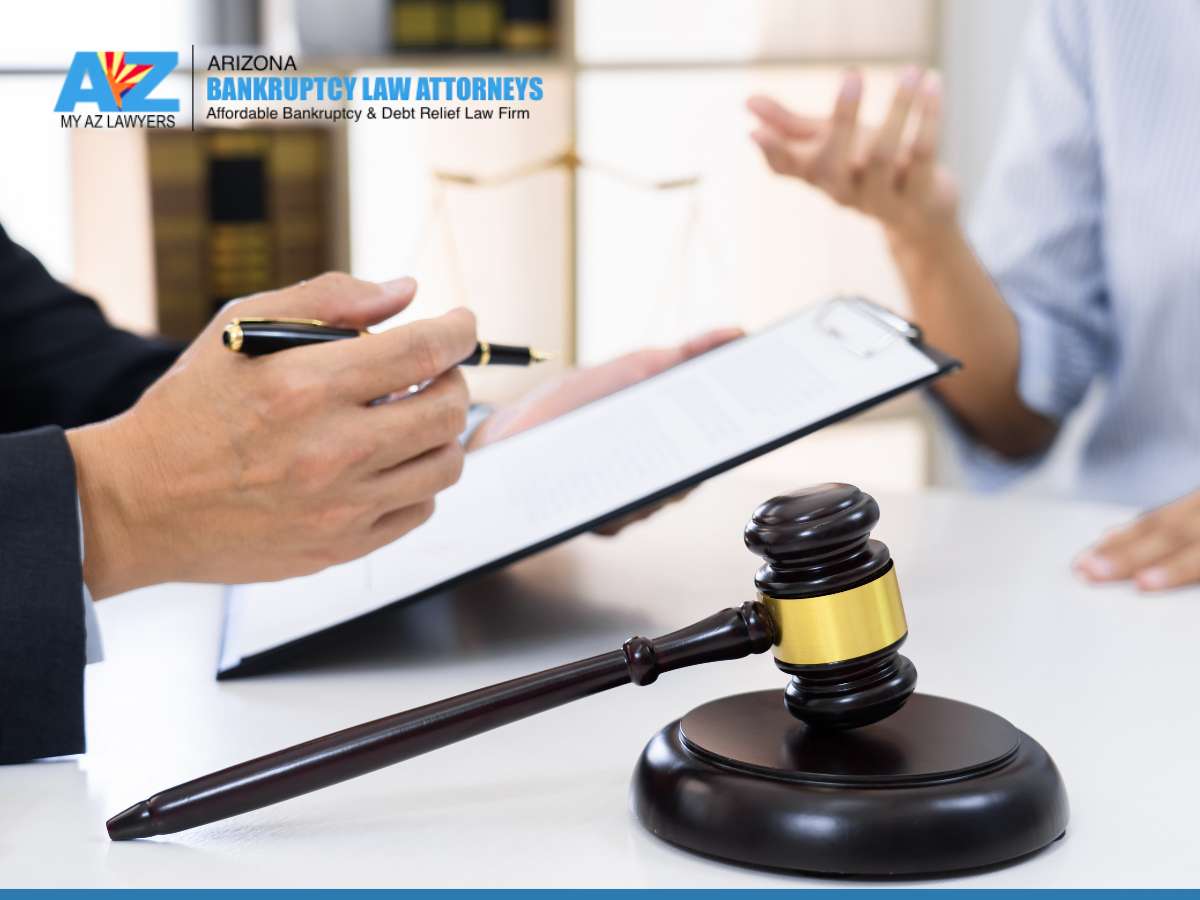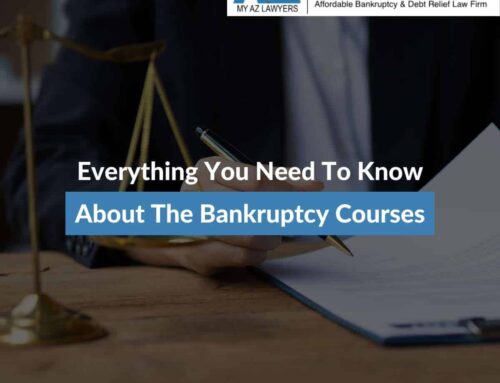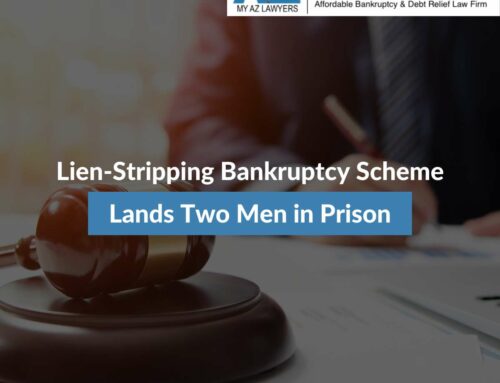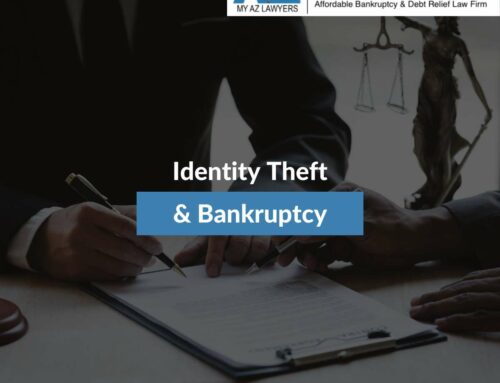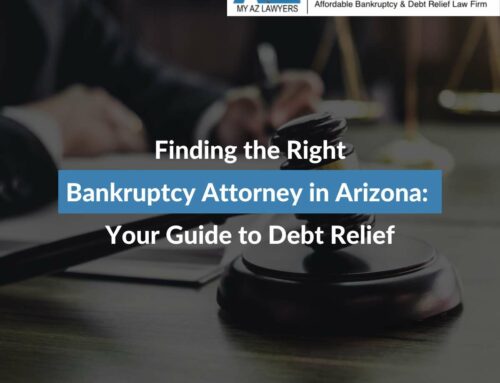Are CD’s Exempt In A Maricopa County Bankruptcy Case?
Bankruptcy exemptions allow people struggling with debts to file for bankruptcy without giving up everything they own. Contrary to commonly-held misconceptions about bankruptcy, a debtor can keep a significant amount of equity in assets like their home, car, retirement savings, and more. But not all investments and bank accounts can be protected when a debtor declares bankruptcy in Maricopa County. One type of investment account that has been growing in popularity lately is a certificate of deposit, or CD. Interest rates are high, which means that CD’s will show greater returns than usual. Other types of investments are riskier in this type of environment because so many businesses are failing. For an investor who values security in their portfolio, CD’s offer guaranteed returns with low risk. When the investor waits until their account matures to withdraw funds, they will not face any EWP’s, or Early Withdrawal Penalties, and will receive a return based on the interest rate for the account. This is an attractive feature when interest rates are high. But if it ever comes to a point where the investor is struggling with debts and considering bankruptcy, protecting the CD account in bankruptcy becomes an issue. Read on to learn more about CD’s in bankruptcy in Phoenix and Maricopa County. To discuss this subject in greater detail with one of our experienced bankruptcy lawyers, call 480-833-8000 to schedule your free consultation.
Can I Keep My CD If I Declare Bankruptcy?
Arizona bankruptcy debtors must apply exemptions to all of their assets in order to protect them during their bankruptcy cases. When assets don’t have exemptions applied to protect them, the trustee might take them to sell at auction. The proceeds from the auction are used to pay back creditors as well as compensate the trustee for their work on the case. Unfortunately, Arizona does not have an asset designated to exempt CD’s, and the bank account exemption in Arizona is relatively small and generally used on a checking account for convenience reasons. A debtor filing bankruptcy in Maricopa County will most likely be putting any savings in CD’s at risk. For more information about CD’s and bankruptcy in Phoenix, call 480-833-8000 for your free consultation.
Which Assets Can I Protect In Bankruptcy?
While there may not be an exemption to protect CD’s during bankruptcy in Arizona, there are plenty of other exemptions that cover a wide range of assets. This allows bankruptcy debtors to erase their debts without giving up assets that are essential to daily life, like a home, car, clothing, furniture, electronic devices, and more. Read on to learn more about the different types of bankruptcy exemptions available in Arizona. If you have any questions about how they apply in your situation, call 480-833-8000 to schedule your free consultation with our Phoenix Bankruptcy Lawyers.
- Homestead exemption: People who own their home versus renting will need to apply this exemption to their residences in bankruptcy. Only houses, condominiums and other cooperations, and mobile homes are covered by the homestead exemption in Arizona- a recent court ruling deemed that motor homes do not apply. The homestead must be a permanent, full-time residence and not be temporary or transportable in nature. Arizona’s homestead exemption can also be used to protect the proceeds from a home sale for up to 18 months or whenever the debtor establishes a new residence, whichever comes first.
- Motor vehicle exemption: This exemption can be doubled for a married couple with two vehicles or combined into the equity in one shared vehicle. The Arizona motor vehicle exemption increases if the debtor has a physical disability (or a dependent with a physical disability) as it may require the installation of equipment that increases the vehicle’s value.
- Household goods & furnishings exemption: This exemption covers a variety of items around the house. Furniture, appliances, electronic devices, and more can all be protected from creditors and the trustee if the debtor applies this exemption correctly. Items that are more of basic necessities can usually be covered by different exemptions.
- Food, fuel & provisions: This exemption can cover smaller household items not covered by the household goods and furnishings exemption. Additionally, this exemption covers a set amount of months’ worth of food, fuel, and provisions rather than a dollar amount.
- Firearms: Arizona’s firearm exemption can protect the aggregate value of multiple firearms while other states may only allow debtors to protect a singular firearm.
- Retirement savings: 401(k)’s, IRA’s, and other retirement savings accounts are generally safe from the trustee and creditors in bankruptcy.
- Social security income: Social security income is exempt in bankruptcy and it is also exempt from creditors regardless of a debtor’s bankruptcy filing.
Which Debts Can I Discharge In Bankruptcy?
If you have read the list of bankruptcy exemptions above and determined that you can protect most or all of what you own, the next question you might move on to is which debts can be cleared by your bankruptcy filing. If you want to confirm whether your debts are dischargeable in a Phoenix bankruptcy filing, contact our Maricopa County bankruptcy team for your free consultation at 480-833-8000.
- Back taxes: Taxes can be cleared by bankruptcy, but they must meet certain requirements to be eligible. The debts must be from a tax year at least 3 years prior to declaring bankruptcy. The taxes must have been filed at least 2 years prior, and the debt must have been assessed at least 240 days prior to filing. Taxes won’t be eligible for discharge if the debtor is found to have committed tax fraud or tax evasion.
- Lawsuit judgments: When a creditor has a judgment against you, it can have negative ramifications for your credit history. Additionally, a creditor can use the judgment from a lawsuit to pursue further debt collection, such as a wage garnishment. Filing for bankruptcy can stop a lawsuit that is pending or clear a judgment that has already been finalized.
- Medical debts: Medical debt is the leading cause of bankruptcy in the United States. A debtor can be left with both medical bills and accrued expenses from missing work after an illness or injury. While Arizona has been placing limitations on the collection of medical debts, they can still amass over time and become an issue that the debtor can’t resolve without assistance. Medical debt is unsecured, making it one of the simpler forms of debt to clear in bankruptcy.
- Credit cards: Credit cards are another common unsecured debt that can eventually cause a person to declare bankruptcy.
Skilled & Reliable Lawyers With Payment Plan Options
If you are seeking an experienced law firm to handle your bankruptcy case, look no further than our Arizona Bankruptcy Lawyers. We help clients across Phoenix and Maricopa County achieve their debt relief goals with efficient service and flexible payment plan options to make filing for bankruptcy more affordable. Leave complex problems and potential issues to the professionals. My Az Bankruptcy Lawyer can make sure you have an effective case so you can proceed with a fresh start. To get started today with your free consultation, contact us or call 480-833-8000.
Mesa Bankruptcy Law Office
4065 E University Dr #500
Mesa, AZ 85205
(480) 470-0005
Phoenix Bankruptcy Law Office
668 North 44th Street, Suite #300
Phoenix, AZ 85008
(480) 833-8000
Glendale Bankruptcy Law Office
My AZ Lawyers
20325 N. 51st Ave.
Suite #134
Glendale, AZ 85308
(623) 640-4945
Tucson Bankruptcy Law Office
My AZ Lawyers
2 East Congress St. Ste. 900
Tucson, AZ 85701
(520) 306-8729
Avondale Bankruptcy Law Office
My AZ Lawyers
12725 W. Indian School Rd.Suite E, #101
Avondale, AZ 85392
(623) 399-4222
Additional Information at:
Phoenix Bankruptcy Lawyer
Mesa Bankruptcy Lawyers
Phoenix DUI Lawyer
Chandler Bankruptcy Lawyer
Tempe Bankruptcy Lawyers
Vegas Zero Down Bankruptcy Attorney
Gilbert Bankruptcy Lawyers
Tucson Bankruptcy Lawyer
Arizona Zero Down DUI
Las Vegas Bankruptcy Lawyers
AZ Bankruptcy Lawyer

